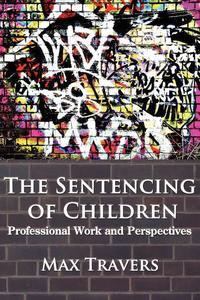This book provides a detailed description of how professional groups collaborate in reaching sentencing decisions in children"s courts. Even when it does not lead to riots or looting, the problem of youth crime continues to concern welfare and justice professionals across the developed world. Following in the tradition of ethnographers, such as Aaron Cicourel and Robert Emerson, this book provides a detailed description of how professional groups collaborate in reaching sentencing decisions in children"s courts. Based on observation of hearings in the three Australian states of Tasmania, Victoria and New South Wales, it describes the practical considerations in sentencing minor, and repeat offenders, and the mitigating factors that influence magistrates. These include economic circumstances, family problems and psychological difficulties, but also youthfulness itself. The study conveys the immense institutional effort spent in trying to reduce or contain the problem of youth offending in a developed, well-ordered society, which we largely take for granted. It supplies a well-documented insight into what actually happens inside children"s courts, and the challenges in addressing youth offending. "This book has a discursive quality... It is a very user-friendly book and will be particularly accessible by students at all levels, both those with and without any socio-legal or criminology background." -Sharyn Roach Anleu, Professor of Social and Policy Studies, Flinders University, Australia "The book offers a well-researched and critiqued study of the sentencing of children... The discussion around theory is excellent. And the writing style is accessible and inviting." -Rosemary Sheehan, Associate Professor of Sociology, Monash University, Australia Это и многое другое вы найдете в книге The Sentencing of Children (Max Travers)
The Sentencing of Children Max Travers
Подробная информация о книге «The Sentencing of Children Max Travers». Сайт не предоставляет возможности читать онлайн или скачать бесплатно книгу «The Sentencing of Children Max Travers»
